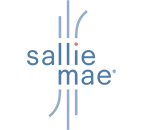Using Federal Law, Research, and Practice to Improve Diversity Efforts in Scholarship Awards, 4:15 - 5:15 pm
By Allie Bidwell, Communications Staff
Many students, even after accounting for federal financial aid, still have unmet need and struggle to pay for college. At the same time, institutions are attempting to meet certain diversity and inclusion goals, but many of the same students fall into both categories. Moving forward, private and institutional scholarships and grants might play a larger role in higher education financing, according to a panel on Wednesday afternoon.
Still, wading into that territory can be tricky. When certain factors such as race, ethnicity, or national origin come into play it can trigger federal laws and cause confusion for institutions and other participants. Joan Zanders of Northern Virginia Community College said in the future she also anticipates to see more legal challenges around gender and religion, considering the current political climate.
Walking the line between legal compliance and diversity and inclusion can be difficult.
“There are a lot of things that remain unsettled,” said Teresa Taylor of EducationCounsel LLC. “It’s not time to think your work is done. Many new challenges are underway.”
It’s already been seen how scholarship and admission issues can spur claims of discrimination. Matters are also complicated when institutions partner with third-party providers. Depending on the arrangement, the party ultimately responsible for legal compliance can vary. Taylor outlined a few recommendations for scholarship providers and institutions:
-
Start with well-articulated goals
-
Design eligibility criteria and selection process to meet the goals
-
Consider how to communicate with schools and students
-
Consider whether and how to coordinate with partners
-
Plan for regular evaluation
Publication Date: 6/28/2017












You must be logged in to comment on this page.